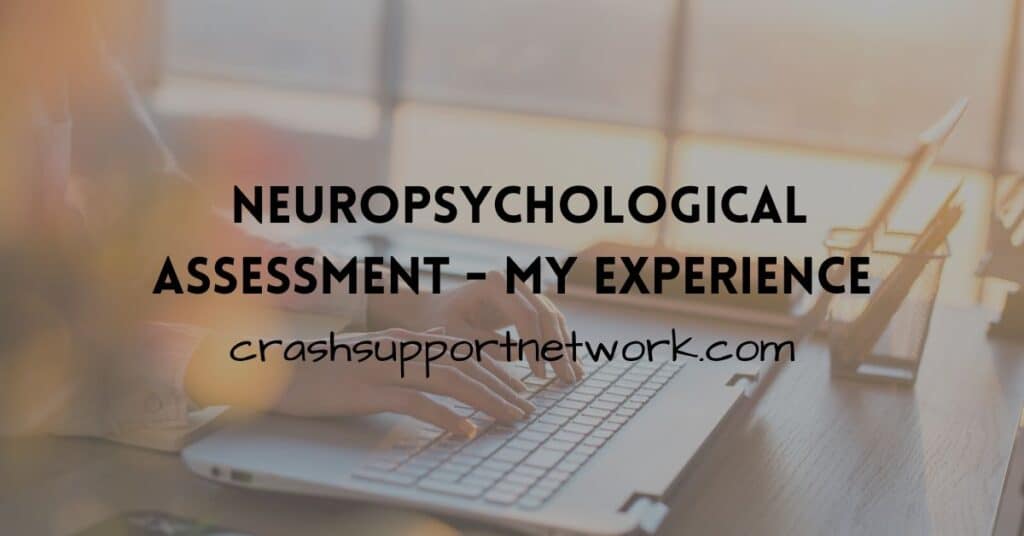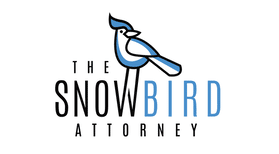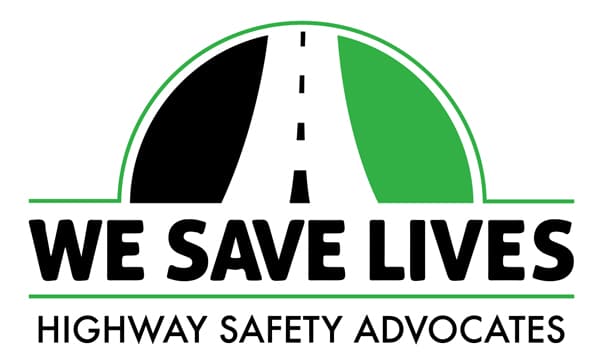
Survivors that are struggling cognitively from their motor vehicle crash may be asked to attend a Neuropsychological Assessment. When that day came for me, I received a document outlining the time, date and the length of time I would be attending a neuropsychological assessment. As I had never attended this type of neuropsychological appointment before, to say I was nervous was an understatement. I was terrified. Not only was this appointment located approximately two hours away from where I resided, I would also need to arrange transportation as I would not be able to drive.
It Will Be a Long Day
When the day came for my neuropsychological assessment, I was introduced to the doctor and was told immediately that I would be there for most of the day with him but if at any time, we could stop the session and re-schedule. The day started off with an interview where the doctor asked me about my medical history and questions about the day of my crash. Once the interview was completed, I was given numerous cognitive tests to perform and I was there for approximately 6 hours which included a lunch break. As I cannot recall the tests specifically that he performed that day, each neuropsychological assessment will be unique to each individual.
Here are some tips from one survivor to another that may help prepare you:
- Try your best to get a good night sleep the night before. Easier said than done right? I found it extremely hard to do that because I was already struggling with a lack of sleep due to pain and anxiety. I tried my best to relax the night before as I realized that there was nothing that I could do to prepare myself as you cannot study for this assessment beforehand.
- Pack a light lunch/snack and beverage. The office you may be attending may not have a coffee shop close by and you must be prepared for a lunch break. Also bring a light sweater or jacket as the office may have fluctuating temperatures and you want to try to remain as comfortable as you can.
- If you currently wear glasses, make sure you bring them to the appointment as you will need them. If you are currently using any assistive devices, bring them with you and use them throughout your appointment. If you are currently using any type of topical pain medication, apply it before your appointment and bring it with you to re-apply throughout the day.
- Arrive early to your appointment. You do not want to arrive right on time as this will only add more anxiety to yourself as you have a long day ahead. If you do not feel comfortable driving, ask a friend or family member to drop you off or take public transportation. If the doctor doesn’t ask how you got to the appointment, mention it to them and ask them to give you adequate notice so you can make arrangements to get home.
- Bring your identification with you as the doctor may ask for it before they start your assessment. I was not told this ahead of time and luckily enough I had it with me. Also note that there should not be any type of financial transaction at this appointment. If the doctor asks for some kind of payment, kindly inform him that you were not aware of this and will need to speak with your lawyer.
- When asked to sign any type of document at your assessment, please make sure you understand what you are signing. If for some reason you do not feel comfortable signing a document, ask the doctor to explain it to you and if you still feel uncomfortable, ask for a copy to review with your lawyer.
- Bring your medication(s) with you to your appointment. You may need to take it while you are there and you do not want to miss a dose. The doctor may also ask you what medication(s) you are currently taking.
- Your session will start with an interview which will include the doctor asking about your medical history. Be honest, polite and remain calm. Don’t be afraid to say “I don’t know”.
- Take as many breaks as you need. If you feel overwhelmed, tired, frustrated or you simply need to walk around to take a break advise the doctor. Several times throughout my appointment, I advised the doctor that I needed a break and took it. I was not only dealing with physical pain, I was experiencing mental fatigue as well. Be aware that the doctor will also be observing how many breaks you requested and he or she will be watching how you manage to get up when you leave their office.
- Like any other doctor’s appointment, if you feel uncomfortable at any time, kindly excuse yourself and follow up with your lawyer about your concerns. Keep in mind that the doctor cannot prescribe any medications or perform any other tests other than this assessment.
- The doctor will expect you to stay until the assessment is completed but don’t push yourself. If you are completely exhausted and feel like you cannot continue with the tests, inform the doctor and re-schedule.
- Don’t take anything personally as this is not your treating doctor. If the doctor mentions that you have cognitive issues or shares their recommendations at the end of the assessment, remain calm and thank the doctor for his time. Once the doctor completes your assessment, a copy will be mailed to you for your review and you can read their recommendations at that time.
Always remember that attending a neuropsychological assessment is a crucial step to your recovery and the progression of your case. If you have concerns before or after your appointment, make sure to follow up with your legal representative.
S. Dawne McKay is a survivor of a horrific crash that changed her life forever. Dawne shares her personal journey as a Crash Survivor Blogger and also collaborates with crash survivors as Guest Bloggers allowing them an opportunity to share their stories. Dawne is also the author of the book, “Talk Crash to Me – What to Expect After Surviving a Collision and How to Manage Your Recovery” which is available for purchase on Amazon.
The Crash Support Network is a unique one-of-a-kind website consisting of an online support group, a crash survivor blog, a quarterly newsletter, “Sharing Our Recovery” as well as highly informative articles. Our website is based on relationship-building and puts the needs of survivors first by creating a helpful resource for victims and survivors of motor vehicle crashes.





